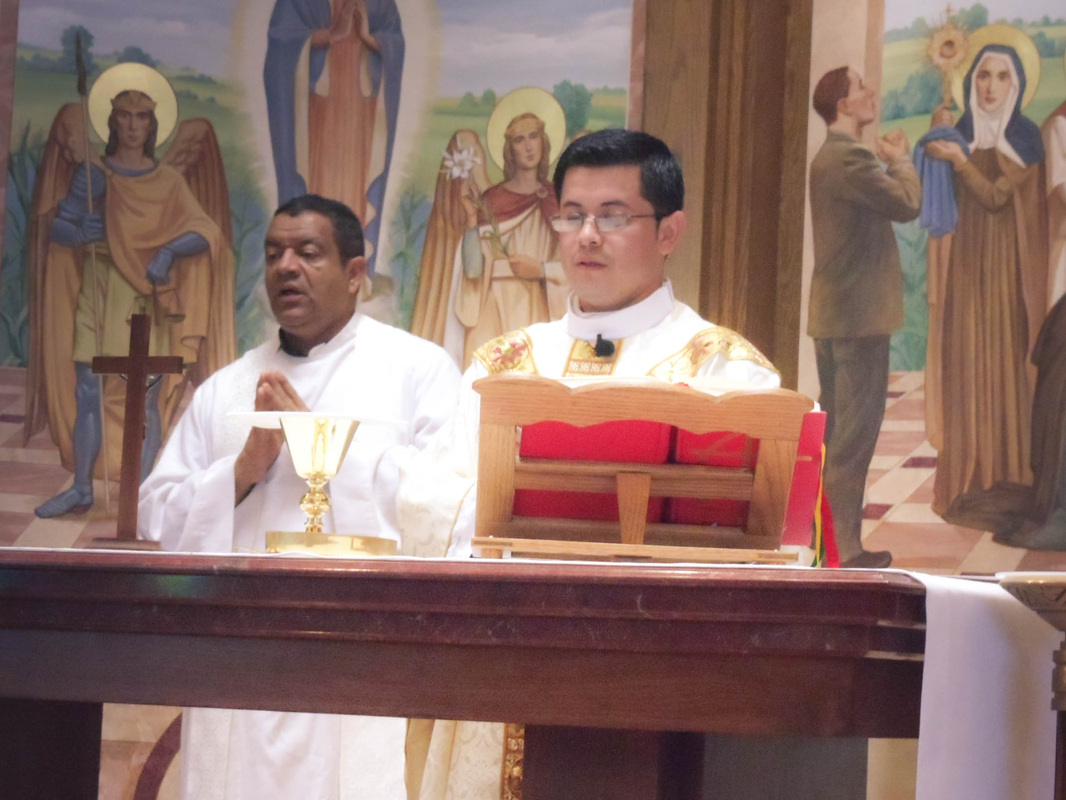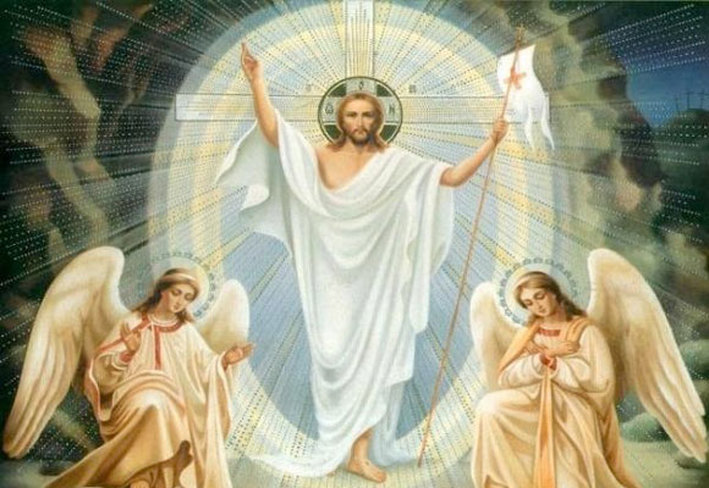 Greetings in the Risen Christ, Forty days ago, we started our liturgical season of Lent. During this time, our sacrifices, prayers, fasting, and works of charity have led us to this special moment, Easter! Today, we begin the celebration of Easter, and will continue celebrating it for fifty days until Pentecost Sunday, May 15th. We are a community which understands that the Passion of Christ, His death on the cross, is a transitional time of deep prayer and meditation which leads us to the joys of the Risen Christ. As a faithful community, we celebrate life in Christ, our friendship, closeness and communion with Him. The joy of Easter is reflected in the prayers, music, readings, the Paschal candle, white in our liturgy, etc. All of these invite us not to be sad, rather to be glad, because our faith is in the Risen Christ. Our gladness is even bigger when we come together as a community, as a parish family, to celebrate our faith. “This is the day the Lord has made; let us rejoice and be glad” (Psalm 118). Happy Easter and praise be to the Risen Christ, Alleluia, Alleluia! Fr. Lopez
1 Comment
Dear parish family, In the bulletin this Palm Sunday weekend, I am sharing with you a letter dated January 21, 2016 which was sent to all the priests of Rockford Diocese from Rev. Jonathan Bakkelund, who was assigned by Bishop David Malloy to the Diocesan Office of Divine Worship. May I ask you to take a moment and read this letter. As we read it, it is clear that Pope Francis has changed a rubric contained in the Roman Missal regarding the tradition of the washing of feet during the celebration of Our Lord’s Supper on Holy Thursday. Because we are used to seeing men chosen for the washing of feet (as the rubric of the Roman Missal read until Pope Francis changed it) this is certainly new for us. We used to connect the tradition of the washing of feet with the sacred priesthood, understanding that Jesus washed the feet of the twelve. As we read the scripture passage from the washing of feet, which took place in the context of the Last Supper, we realize that it was a private celebration between Jesus and his close disciples. We also learn that Jesus’ washing of the disciple’s feet was a teaching moment for the twelve. After washing their feet, Jesus said, “Do you realize what I have done for you? You call me ‘teacher’ and ‘master,’ and rightly so, for indeed I am. If I, therefore, the master and teacher, have washed your feet, you ought to wash one another’s feet. I have given you a model to follow, so that as I have done for you, you should also do” (John 13:12-15). Pope Francis invites us to look at the tradition of the washing of feet as a call to serve one another. In particular, it is a clear reminder for us priests that our ministry is a ministry of service. I came to St. Patrick Church to serve the entire community: men and women, children and youth, adults and the elderly, the healthy and the sick. No doubt, the Pope’s decision regarding our liturgy awakens a sense of surprise in us. Let us take it as a teaching moment. The shepherd, whom the Holy Spirit has sent to us, reminds us one more time that it doesn’t matter what office or ministry we have been called to, it is a call to serve one another. God bless St. Patrick Church. Fr. Lopez Estimada familia parroquial,
En el boletín de este fin de semana del Domingo de Ramos, estoy compartiendo con ustedes una carta con fecha 21 de enero, el año 2016 enviados a todos los sacerdotes de la Diócesis de Rockford por parte del Rev. Jonathan Bakkelund, que fue asignado por el obispo David Malloy a la Oficina Diocesana de Culto Divino. ¿Puedo pedirle que tome un momento para leer esta carta? Según nuestra interpretación, es evidente que el Papa Francisco ha cambiado un contenido en el Misal Romano en relación con la tradición del lavatorio de los pies durante la celebración de la Cena del Señor el Jueves Santo. Debido a que estamos acostumbrados a ver a los hombres elegidos para el lavado de los pies (como la rúbrica del Misal Romano lee hasta que el Papa Francisco lo cambió) esto es ciertamente nuevo para nosotros. Anteriormente conectábamos la tradición del lavatorio de los pies con el sacerdocio sagrado, entendiendo que Jesús lavó los pies de los doce. Al leer el pasaje de la escritura del lavatorio de los pies, que tuvo lugar en el contexto de la última cena, nos damos cuenta de que se trataba de una celebración privada entre Jesús y sus discípulos más cercanos. También aprendemos que el lavado de los pies del discípulo de Jesús fue un momento de enseñanza para los doce. Después de lavar sus pies, Jesús dijo: "¿Se dan cuenta de lo que he hecho por ti? Ustedes me llaman Maestro y Señor, y decís bien, porque lo soy. Si, por lo tanto, el Señor y el Maestro, les ha lavado los pies, también ustedes deben lavarse los pies unos a otros. Os he dado ejemplo a seguir, por lo que como he hecho para ustedes, ustedes debe también hacer” (Juan 13: 12-15). El Papa Francisco nos invita a mirar a la tradición del lavatorio de los pies como una llamada a servir a los demás. En particular, es un recordatorio claro para nosotros los sacerdotes que nuestro ministerio es un ministerio de servicio. Llegué a la iglesia de San Patricio para servir a toda la comunidad: hombres y mujeres, niños y jóvenes, adultos y ancianos, sanos y enfermos. Sin duda, la decisión del Papa con respecto a nuestra liturgia despierta una sensación de sorpresa en nosotros. Tomemos lo como un momento de enseñanza. El pastor, a quien el Espíritu Santo ha enviado a nosotros, nos recuerda una vez más que no importa qué oficio o ministerio hemos sido llamados, es una llamada a servir a los demás. Dios bendiga a la iglesia de San Patricio. P. López Dear Community,
For this Fifth Sunday of Lent we read the passage from the Gospel of John about a woman caught in adultery. The scribes and Pharisees brought the woman before Jesus, hoping to severely punish her. As we meditate with this passage from scriptures, I think there are two lessons we can take from it. First, we should ask: “Is it our role to judge a person for his/her sins? Do we truly have the autonomy to do so?” After reading this Gospel, the answer is no. Even speaking about someone’s sins is an act of judgment. It affects the good name and dignity of the person, and it is a sin in itself. The sacrament of Confession is not a judgement, rather a moment of mercy. The priest acts in Persona Christi, meaning Christ forgives the person’s sins through the ministry of the priest. The second teaching moment is about God’s mercy. After everyone left, Jesus asked the woman, “… where are they?” And this is the great moment of mercy in the Gospel, “Neither do I condemn you. Go, and from now on do not sin anymore.” During this year, we are learning about God’s great mercy toward us. He is truly a merciful father who is willing to forgive our sins as long as we recognize them. He also tells us “Go, and from now on do not sin anymore.” God bless you all. Fr. Lopez 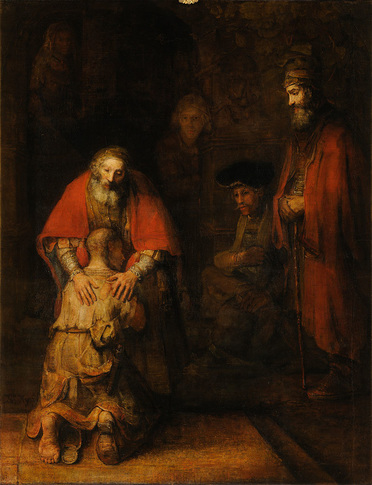 Dear Community, In the liturgy for this 4th Sunday of Lent we read the passage from Luke, known as The Lost Son or the Merciful Father (Luke 15: 11-32). It is the story of a son who asks his father for his inheritance and leaves for a distant land, seeking to live an independent life away from his father. He is not a good steward, and he wastes his money on a bad and sinful life. As is expected with that life style, he began to face many challenges, even to the point of lacking food. It is in that moment of difficulty in which he realizes how much he was blessed during his years at home with his father. He comes to the conclusion, “Father, I have sinned against heaven and against you. I no longer deserve to be called your son; treat me as you would treat one of your hired workers” (Luke 15: 18-19). The father, out of his unconditional love for his son, not only forgives him but welcomes him with open arms and calls for a big celebration, “because this son of mine was dead, and has come to life again; he was lost, and has been found” (Luke 15: 24). As we meditate on this parable, haven’t we acted in a rebellious and selfish way at some point in our lives? Haven’t we desired an independent life away from God and his Church? Yes, moved by our rebellious hearts, often times we decide to live our own way, to stay away from the Church. Many of us also get to the point in which we realize how blessed we were while we were part of the Church and close to God. Very often in my ministry, I listen to people coming back to the Church with a contrite heart, just like the prodigal son in the Gospel. They realized that by disconnecting themselves from the Church, they actually moved away from God. It is also true that God is that Merciful Father who is always waiting for us with open arms. God bless you all. Fr. Lopez Estimada Comunidad, En la liturgia de este cuarto Domingo de Cuaresma leemos el pasaje de Lucas, conocido como el hijo perdido o el Padre misericordioso (Lucas 15: 11 -32). Es la historia de un hijo que le pide a su padre su herencia y se aleja hacia una tierra distante, tratando de vivir una vida independiente lejos de su padre. Él no es un buen administrador de su dinero, y malgasta su dinero en una vida mala y pecadora. Como era de esperarse con el estilo de vida que lleva, comenzó a enfrentarse a muchos desafíos, incluso hasta el punto de carecer de alimentos. Es en ese momento de dificultad en el que se da cuenta de lo bendecido que fue durante sus años en casa con su padre. Llega a la conclusión: "Padre, he pecado contra el cielo y contra ti. Ya no soy digno de ser llamado tu hijo; trátame como lo haría con uno de tus jornaleros "(Lucas 15: 18-19). El padre, por su amor incondicional a su hijo, no sólo lo perdona, pero le da la bienvenida con los brazos abiertos y pide una gran celebración, “Porque este hijo mío estaba muerto y ha vuelto a la vida; estaba perdido y ha sido hallado” (Lucas 15: 24). Al meditar en esta parábola, no hemos actuado de una manera rebelde y egoísta en algún momento de nuestras vidas? ¿No hemos deseado una vida independiente lejos de Dios y de su Iglesia? Sí, movidos por nuestros corazones rebeldes, muchas veces decidimos vivir a nuestra manera, nos mantenemos alejados de la Iglesia. Muchos de nosotros también nos damos cuenta de lo bendecidos que estuvimos mientras éramos parte de la Iglesia y cerca de Dios. Muy a menudo en mi ministerio, escucho a la gente volver a la Iglesia con un corazón contrito, al igual que el hijo pródigo en el Evangelio. Se dieron cuenta de que, al desvincularse a sí mismos de la Iglesia, en realidad se alejaron de Dios. También es cierto que Dios es Padre misericordioso que quien siempre nos está esperando con los brazos abiertos. Dios los bendiga a todos. Padre Lopez Dear Community,
Today, I would like to meditate and talk about the virtue of humility. I would like to start by asking what it is that impedes us from growing in the virtue of humility so that we can make an effort to avoid it. The major obstacle for living a humble life is the sin of pride. Jesus preached against this sin, in particular to those in authority, such as the Pharisees and the Sadducees. We know from scripture that they liked to be seen for their righteous deeds. The Sadducees and Pharisees were not the only ones tempted with the sin of pride. We can become prideful ourselves because of our knowledge, our achievements, our discipline of prayer, or our abilities in any particular field. Lenten Season is that time in which we are called to examine our words, thoughts and deeds in order to identify our sins, including the sin of pride, and take it to the sacrament of Confession. Confession is the place in which we tackle the sin of pride and begin to walk the path of humility. It is in the context of prayer in which we are strengthened and encouraged to live a humble life. Prayer is a powerful source for humility. For instance, the prayer through which we recognize our sins and seek forgiveness makes us humble. The prayer of thanksgiving through which we count our blessings as coming from God and not from our own achievements helps us to foster that humble attitude in life. Lastly, the prayer before the Blessed Sacrament; during this prayer time we kneel before God the Almighty and acknowledge His holy presence at the same time that we recognize our human lowliness. God bless you all. Fr. Lopez. Estimada Comunidad, Hoy me gustaría meditar y aprender acerca de la virtud de la humildad. Me gustaría empezar preguntando qué es lo que nos impide crecer en la virtud de la humildad para que podamos hacer un esfuerzo para evitarlo. El obstáculo principal para vivir una vida humilde es el pecado del orgullo. Jesús predicó en contra de esto, el pecado en particular a los que tienen autoridad, como los fariseos y los saduceos. Sabemos por medio de las Escrituras que les gustaba ser visto por sus buenas acciones. Los saduceos y fariseos no fueron los únicos tentados con el pecado del orgullo. Podemos llegar a ser orgullosos por nuestros conocimientos, nuestros logros, nuestra disciplina de la oración, o nuestras habilidades en cualquiera de las esferas. Tiempo de Cuaresma es el tiempo en el que estamos llamados a examinar nuestras palabras, pensamientos y acciones con el fin de identificar el pecado de orgullo y llevarlo al sacramento de la Confesión. La confesión es el lugar en el que manejamos el pecado del orgullo y comenzamos a caminar por la senda de la humildad. Es en el contexto de la oración que estamos fortalecidos y animados a vivir una vida humilde. La oración es una fuente de gran alcance para la humildad. Por ejemplo, es a través de la oración en donde reconocemos nuestros pecados y buscamos el perdón. Este acto nos hace humildes. La oración de acción de gracias, a través del cual contamos nuestras bendiciones como proveniente de Dios y no de nuestros propios logros, nos ayuda a fomentar esa actitud de humildad en la vida. Por último, la oración ante el Santísimo Sacramento; durante este tiempo de oración nos arrodillamos ante Dios Todopoderoso, y reconocemos su santa presencia, al mismo tiempo que reconocemos nuestra pequeñez humana. Dios los bendiga a todos. Padre López |
Rev. Johnson LopezFather Lopez is Pastor of Saint Patrick Catholic Church in Rochelle, IL. Categories
All
Archives
April 2017
|
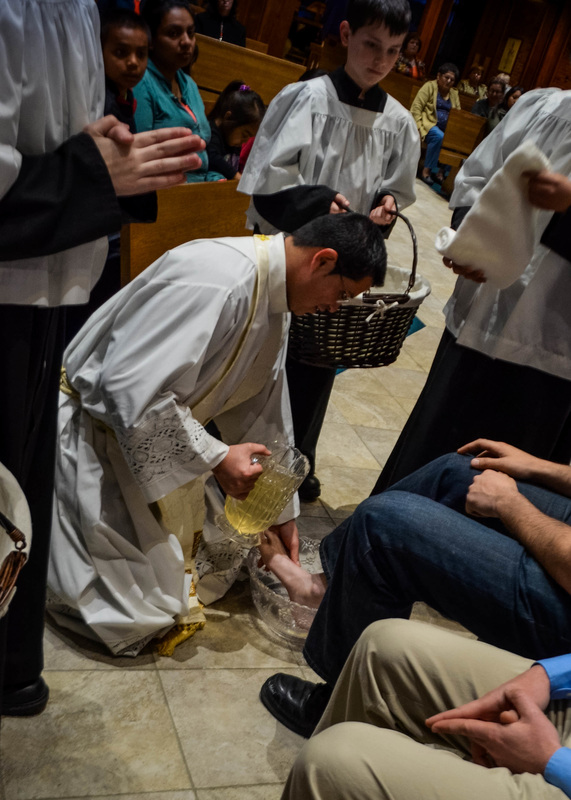
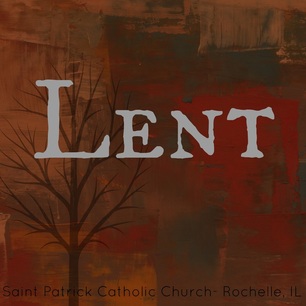
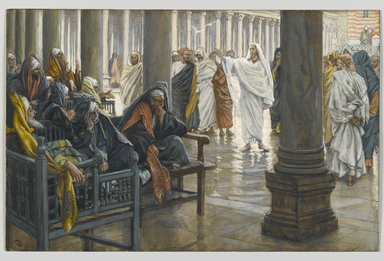
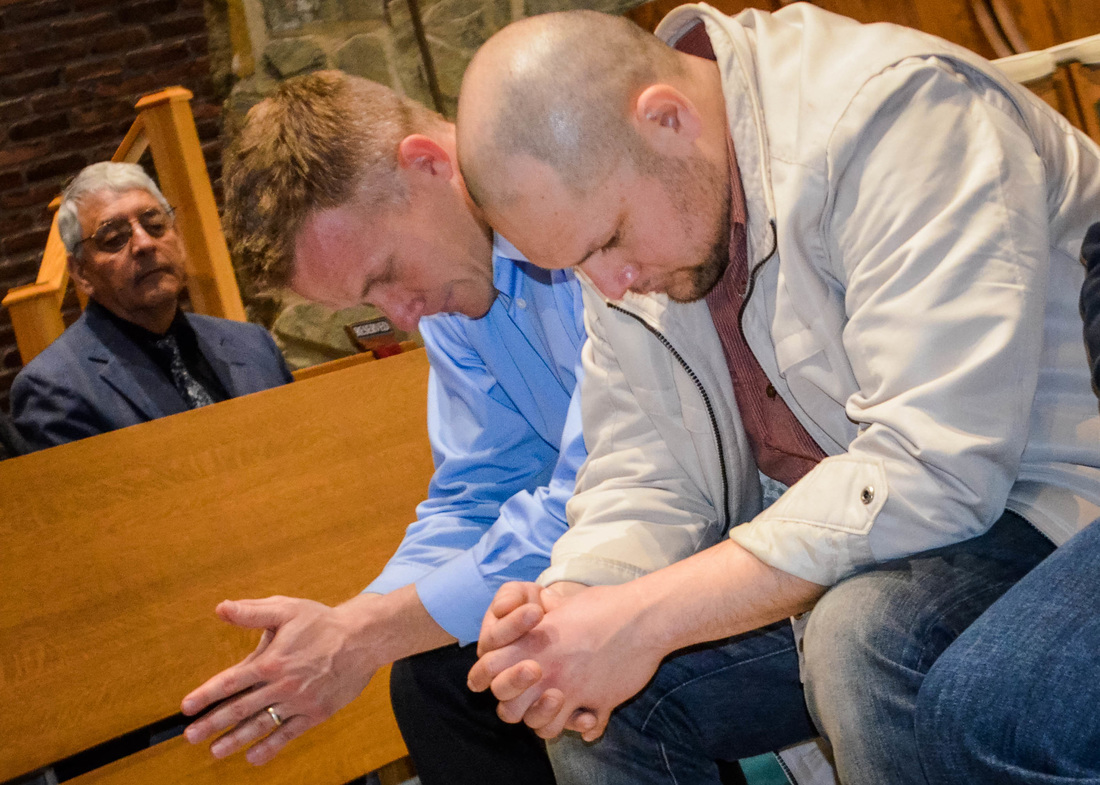
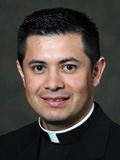
 RSS Feed
RSS Feed
